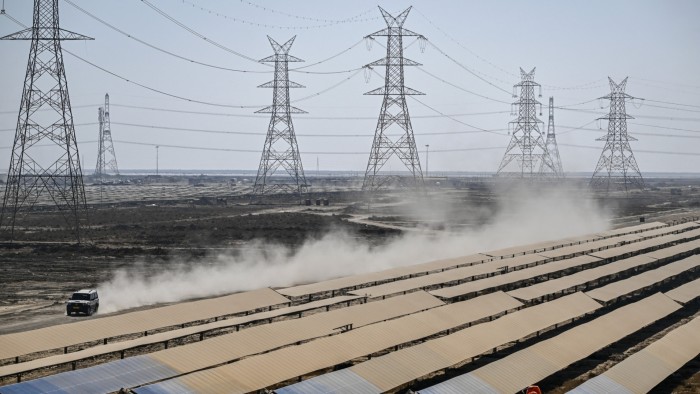Unlock the Editor’s Digest for free
Roula Khalaf, Editor of the FT, selects her favourite stories in this weekly newsletter.
India’s second-largest renewable energy company ReNew is planning to leave the Nasdaq after losing more than 30 per cent of its market value since listing in 2021.
ReNew, which has a market capitalisation of just over $2.4bn, was founded in 2011 and now has more than 10 gigawatts of renewable capacity, split roughly half between wind and solar.
It is part of a group of companies led by Adani Green Energy that are pursuing India’s target to more than double its non-fossil fuel power generation capacity to 500GW by 2030 as the coal power-dependent country attempts to meet growing energy demand.
India’s renewable industry is reeling after US prosecutors last month accused Gautam Adani and seven others of orchestrating a $265mn bribery scheme to secure green energy deals with Indian officials. Adani’s conglomerate has rejected the charges, with the billionaire telling an audience last month that “every attack makes us stronger”.
ReNew is planning to offer $7.07 a share, compared with Tuesday’s closing price of $6.34, in a buyout deal with a consortium of companies, according to a US Securities and Exchange Commission filing dated December 10.
The consortium includes Masdar, the state-owned UAE renewable energy company, and other strategic investors such as the Canada Pension Plan Investment Board, one of the world’s biggest pension funds, and the Abu Dhabi Investment Authority. ReNew declined to comment.
“There is a high probability the consortium will be able to buy out the other shareholders and take ReNew private, although they might have to make a better offer,” Bernstein India analysts wrote in a note. “Subsequent to that it won’t be surprising to us to see the stock listed back in India with a capital raise to help ReNew realise its full potential.”
Sumant Sinha, a former investment banker and chief executive of ReNew, told the Financial Times this year that markets were undervaluing renewable energy companies and hampering the green transition.
He added that ReNew was considering moving its listing from the Nasdaq over the prospect of Donald Trump’s re-election hitting clean energy stocks.
In August, ReNew signed a supply contract to provide Microsoft in India with nearly 440MW of green electricity.
“The biggest challenge is the US listing itself,” said a Mumbai-based energy analyst, who added that the “low liquidity” company makes it a relative minnow for US investors. “The target market for the stock is very small.”
The analyst added that ReNew’s “high” debt levels and costs had put pressure on profitability. “You cannot have a lot of overheads,” he said. “It is a low-returns business.”
In a research note in September, analysts at Morgan Stanley downgraded ReNew to “equal weight”, saying that while the company was likely to report strong earnings growth, its revenues would be volatile because of its large wind portfolio and that it had significant levels of debt.
Read the full article here

